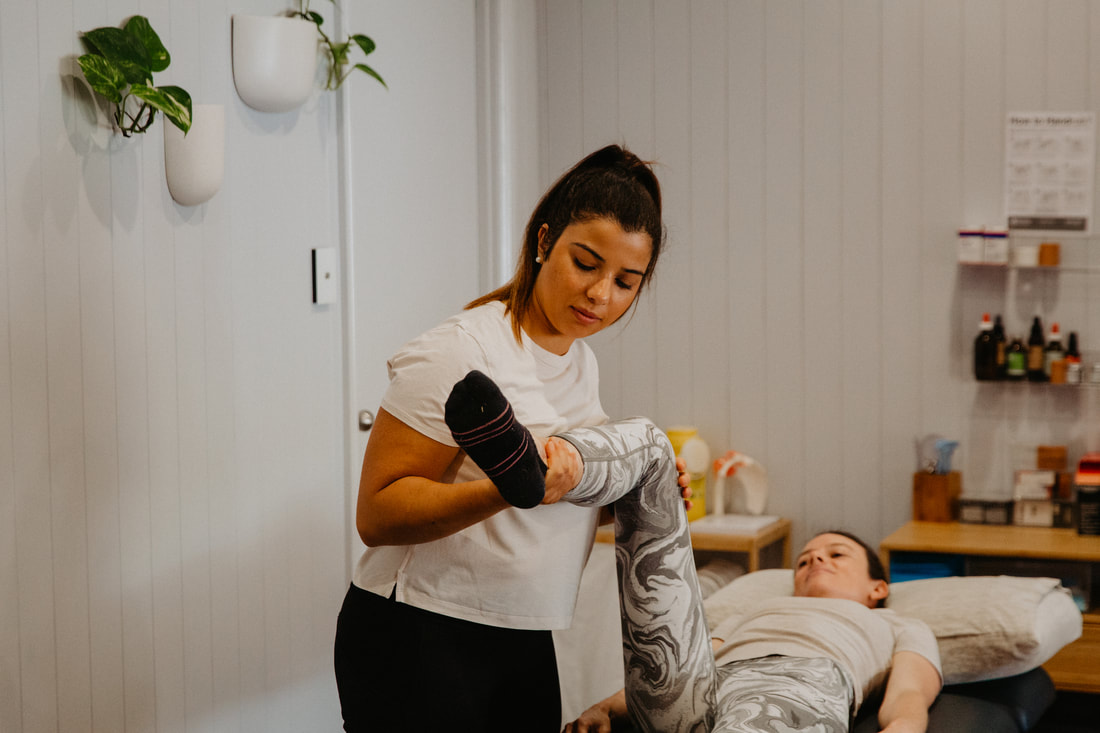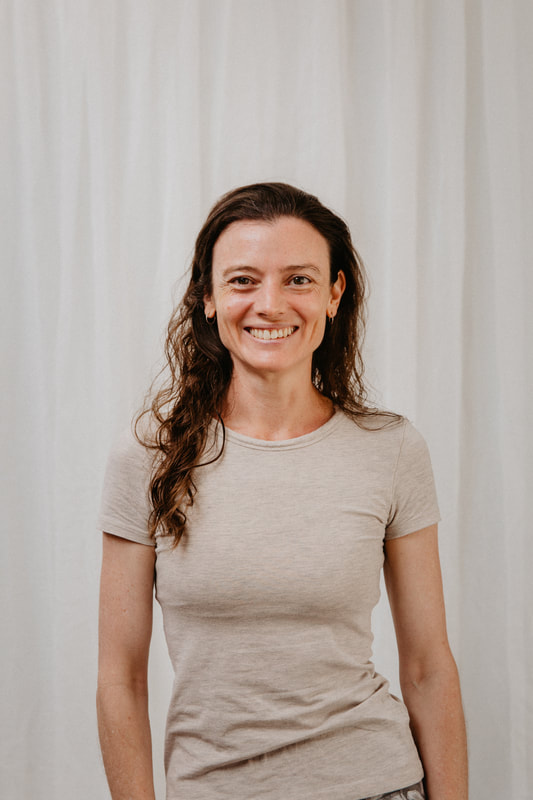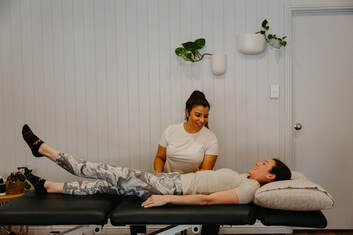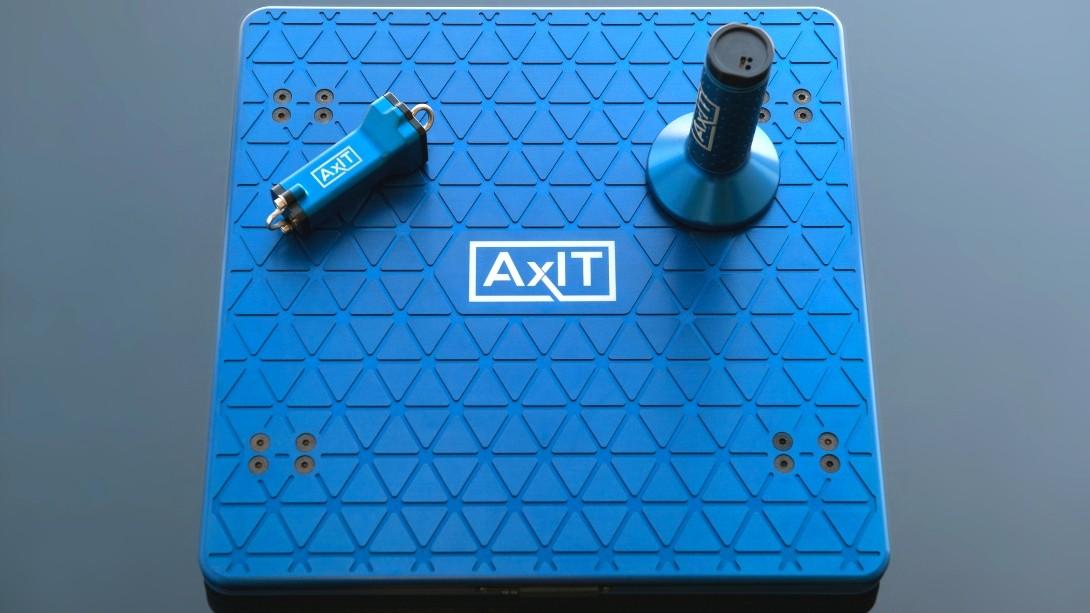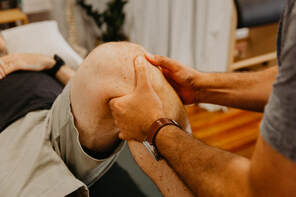Pre-Point Assessments Brisbane Southside
Our Physiotherapist-led Pre-Pointe Assessments are claimable on Private Health under Code 500.
Available Tuesday - Saturday
with Emma Cameron
Initial Pre-Pointe Assessment (60min) $175
Available Tuesday - Saturday
with Emma Cameron
Initial Pre-Pointe Assessment (60min) $175
Welcome to Articulate Physiotherapy! We are a physiotherapy clinic located in Tarragindi on Brisbane's Southside, specialising in pre-pointe assessments for dancers.
Pre-pointe assessments are an essential step in the dance training process, as they help to identify any potential issues that could lead to injury while dancing en pointe. Our physiotherapists are highly trained and experienced in assessing a dancer's readiness for pointe work, including strength, flexibility, and control.
The benefits of pre-pointe assessments performed by a physiotherapist include:
At Articulate Physiotherapy, we understand the importance of proper preparation for dancers. We are committed to providing the highest quality pre-pointe assessments to help ensure your safety and success. Contact us today to schedule your assessment and take the first step towards dancing en pointe.
Pre-pointe assessments are an essential step in the dance training process, as they help to identify any potential issues that could lead to injury while dancing en pointe. Our physiotherapists are highly trained and experienced in assessing a dancer's readiness for pointe work, including strength, flexibility, and control.
The benefits of pre-pointe assessments performed by a physiotherapist include:
- Early identification of potential issues: Our physiotherapists can identify any muscle imbalances or weaknesses that may put a dancer at risk for injury. This allows for early intervention and corrective measures to be put in place.
- Customised training plan: Our physiotherapists will work with you to create a customised training plan tailored to your specific needs. This ensures that you are working on the right exercises to prepare for pointe work and minimise the risk of injury.
- Improved technique: Pre-pointe assessments can also help to improve your overall technique by addressing any areas of weakness or imbalance. This can lead to better overall performance and a more graceful dance style.
- Increased confidence: Knowing that you have been properly assessed and prepared for pointe work can give you the confidence you need to perform at your best.
At Articulate Physiotherapy, we understand the importance of proper preparation for dancers. We are committed to providing the highest quality pre-pointe assessments to help ensure your safety and success. Contact us today to schedule your assessment and take the first step towards dancing en pointe.
PRE-POINTE ASSESSMENT FAQs
What happens in a pre-pointe assessment?
A pre-pointe assessment by a physiotherapist typically includes a thorough evaluation of the dancer's overall physical condition, with a focus on the specific requirements for pointe work. The assessment may include the following elements:
- Medical history review: The physiotherapist will ask about any previous injuries or medical conditions that may affect the dancer's ability to perform pointe work.
- Posture and alignment assessment: The physiotherapist will evaluate the dancer's posture and alignment to identify any imbalances or asymmetries that may put the dancer at risk for injury.
- Strength and flexibility assessment: The physiotherapist will assess the dancer's strength and flexibility, with a focus on the muscles required for pointe work, such as the feet, ankles, calves, and legs.
- Balance assessment: The physiotherapist will assess the dancer's balance and control, which are essential for dancing en pointe.
- Foot and ankle assessment: The physiotherapist will assess the dancer's feet and ankles, looking for any issues such as flat feet, high arches, or hyperextension.
- Gait analysis: The physiotherapist may also analyse the dancer's gait, or the way they walk and move, in order to evaluate their overall movement patterns and identify any areas of weakness or imbalance.
- Barre assessment: The physiotherapist may also assess the dancer's technique at the barre, including the alignment, foot and ankle control, and muscle activation.
Based on the results of the assessment, the physiotherapist will make recommendations for a customised training program to help the dancer prepare for pointe work, and minimise the risk of injury.
What happens if a dancer isn't ready for pointe?
If a dancer is not ready for pointe work, the physiotherapist may recommend postponing pointe training until the dancer has developed the necessary strength, flexibility, and control. This is important to minimise the risk of injury, as dancers who begin pointe work before they are physically ready may be at a higher risk for developing conditions such as tendinitis, stress fractures, and other injuries.
Some common reasons that a dancer may not be ready for pointe include:
- Weakness or imbalances in the feet and ankles: The feet and ankles are essential for pointe work, and a lack of strength and control in these areas can lead to injury.
- Limited flexibility: Pointe work requires a high degree of flexibility, particularly in the feet and ankles. If a dancer lacks sufficient flexibility, they may be at a higher risk for injury.
- Poor posture and alignment: Good posture and alignment are essential for proper technique and injury prevention. If a dancer has poor posture or alignment, they may be at a higher risk for injury.
- Lack of core and lower body strength: Core and lower body strength are essential for pointe work, as they provide the stability and control needed for the movement.
In these cases, the physiotherapist will work with the dancer to develop a individualised training program to address these areas of weakness and improve their readiness for pointe work. This may include exercises such as strength training, stretching, and conditioning to develop the necessary physical attributes. The physiotherapist may also work with the dancer's dance teacher to help the dancer to improve their technique and alignments, that will help them to be ready for pointe work.
How do we use the Axit system in pre-pointe assessments?
Here at Articulate we utilise the latest technology in our Pre-Pointe Assessments with our objective strength testing Axit System. The Axit system is a tool that can be used by physiotherapists to perform objective evaluations of a dancer's readiness for pointe work. Here are a few ways in which the Axit system can be used in a pre-pointe assessment:
- Strength assessment: measures the strength of the dancer's feet, ankles, and lower legs, providing an objective measure of their readiness for pointe work.
- Flexibility assessment: measures the flexibility of the dancer's feet and ankles, providing an objective measure of their range of motion and ability to perform the movements required for pointe work.
- Balance assessment: assesses the dancer's balance and control, providing an objective measure of their ability to maintain proper alignment and stability while dancing en pointe.
- Gait analysis: analyses the dancer's gait, providing an objective measure of their movement patterns, and identifies any areas of weakness or imbalance.
- Barre assessment: assesses the dancer's technique at the barre, providing an objective measure of their alignment, foot and ankle control, and muscle activation.
How does a pre-pointe assessment impact pointe shoe fitting?
A pre-pointe assessment can greatly impact the fitting of pointe shoes for a dancer. The assessment can provide the physiotherapist with information about the dancer's feet, ankles, and legs, which can help to determine the appropriate type and size of pointe shoe for the dancer.
Here are a few ways in which a pre-pointe assessment can impact pointe shoe fitting:
- Foot shape and size: The pre-pointe assessment can provide information about the shape and size of the dancer's feet, which can help to determine the appropriate width and length of the pointe shoe.
- Arch height: The pre-pointe assessment can provide information about the dancer's arch height, which can help to determine the appropriate level of support required in the pointe shoe.
- Flexibility: The pre-pointe assessment can provide information about the dancer's flexibility, which can help to determine the appropriate level of shank stiffness in the pointe shoe.
- Strength and control: The pre-pointe assessment can provide information about the dancer's strength and control, which can help to determine the appropriate level of support required in the pointe shoe.
- Medical history: The pre-pointe assessment can also provide information about any previous injuries or medical conditions that may affect the dancer's ability to perform pointe work, this information can help to determine the appropriate level of support and protection required in the pointe shoe
By taking into account all these factors, the physiotherapist can recommend the most appropriate pointe shoe for the dancer, which can help to minimise the risk of injury and optimise the dancer's performance. It is important to note that pointe shoe fitting should be done by a professional fitter that has experience in pointe shoes fitting, such as a specialist dance store or a professional pointe shoe maker.
Our pre-pointe physiotherapist.
|
Physiotherapist.
Emma Cameron. Many families coming in for pre-pointe assessments will already know Emma from her years of pointe shoe fitting. Coming from a background in ballet, Emma has always had an interest in health and movement. She studied a Bachelor of Science - Psychology (Honors) before moving on to a Masters of Sport and Exercise and Masters of Physiotherapy. She is trained in Pilates and has a strong interest in exercise prescription for performance enhancement and injury prevention, and a particular interest in working with dancers. Her special interest areas include:
Emma loves combining holistic patient care with skilled exercise prescription for a variety of conditions. She is Member of the International Association for Dance Medicine & Science and Member of Dance Medica. |
If you are unsure about which appointment type is right for you, please don't hesitate to get in touch with our friendly reception staff by calling 07 3706 3407 or emailing [email protected].
